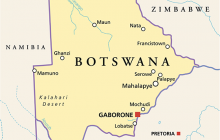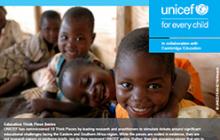Elizabeth Spier
Elizabeth Spier is a principal researcher at AIR. She has over 20 years of experience designing and managing large-scale, policy-relevant studies examining the effectiveness of programs, and interventions designed to improve developmental and educational outcomes for children. Her expertise includes child development, safe and supportive learning environments, child and family wellbeing, and school readiness.
Dr. Spier has worked in more than 25 low-and-middle-income countries, as well as in the U.S. and other upper-income countries. Some of her recent research has focused on the evaluation of accelerated school readiness programming across multiple countries, including Cambodia, Côte d’Ivoire, Laos, Mozambique, and Tanzania, and the provision of effective support for students with behavioral or mental health challenges in the U.S.
In the area of safe and supportive learning environments, Dr. Spier is leading the development of a national remediation and enrichment program for Botswana’s government primary and secondary schools. She is also supporting the use of USAID’s Rapid Education and Risk Analysis Toolkit in Burkina Faso and recently led an update for the School Climate Improvement Resource Package for the National Center on Safe Supportive Learning Environments. Since 2006, she has supported the Association of Alaska School Boards in developing their School Climate and Connectedness Survey.
Before joining AIR, Dr. Spier spent six years as a social worker for children and families involved in emergency foster care. Since 2014, Dr. Spier has served as a member of AIR’s institutional review board and has a strong interest in research ethics.

PhD, Psychological Development, New York University; MA, Applied Psychology, City University of New York; BA, Music, Sarah Lawrence College







